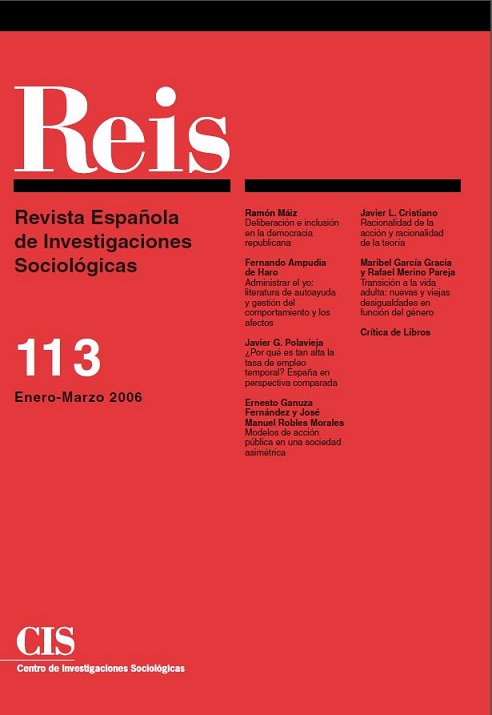Deliberation and inclusion in republican democracy
DOI:
https://doi.org/10.5477/cis/reis.113.11Keywords:
Democracy, Political Representation, Political ParticipationAbstract
This article proposes a normative reinterpretation of republican democracy, given the challenges that today’s societies face due to their increasing cultural diversity and pluralism. For this purpose, an additional axis has been added to the classical perspective based on the relationship between those who govern and those who are governed (an indirect relationship in
representative democracy and direct in participative democracy). This new axis is the political production of preferences. Using these two vectors, this article provides an examination of the traditional dimensions of republican democracy: representation, participation and deliberation, along with one more, namely, inclusion. This perspective holds that republicanism should begin with the assumption of the endogenous production of preferences, rather than simply basing
itself on their aggregation. This leads to a reformulation of the content and relationships between the four dimensions of democracy. In conclusion, the normative primacy of deliberation and inclusion should lead us to overcome a purely expressive and exogenous vision of republican democracy and «policies of recognition».
Downloads
Downloads
Published
How to Cite
Issue
Section
License
Copyright (c) 2024 Revista Española de Investigaciones Sociológicas

This work is licensed under a Creative Commons Attribution-ShareAlike 4.0 International License.
Permite Compartir — copiar y redistribuir el material en cualquier medio o formato, Adaptar — remezclar, transformar y construir a partir del material para cualquier propósito, incluso comercialmente.








